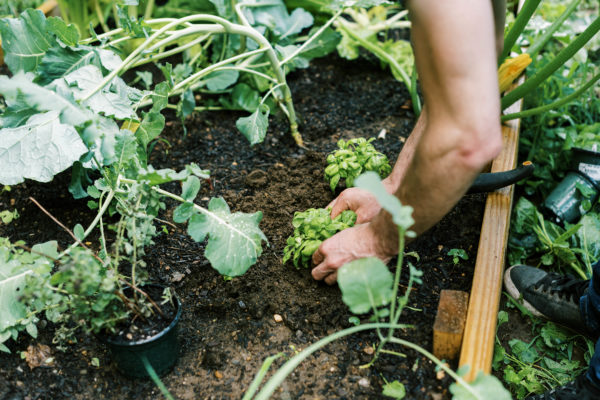
The Minister of Gender Equality Kalpana Koonjoo-Shan, the Senior Chief Executive of the Ministry of Agro-Industry and Food Security Medha Gunputh, and the Majority Backbencher Subhasnee Luchmun-Roy, were present at the launch of the vegetable garden project and the promotion of entrepreneurship in agriculture held at the Farmers Service Center, Rivière-du-Rempart.
The Challenges faced by Mauritius
The Minister of Gender Equality Koonjoo-Shan highlighted that Mauritius has gone through several intense challenges over the past two years. From the Covid-19 pandemic and the effects of climate change to the war between Ukraine and Russia, these have led to the overall increase of prices over the board of basic products, including food prices.
“Mauritius is vulnerable to soaring prices of imported food products, raw materials such as fertilizers, seeds, ingredients for livestock feed, and increased transport costs”, adds Koonjoo-Shan. Therefore, the government is encouraging the concept of family backyard gardening and organic food production in the country to help ensure food security.



The crops selected for this project will be cultivated according to organic principles recalls the Minister. Additionally, she also points out that at the regional level, the Food and Agricultural Research and Extension Institute is promoting the concept of organic home garden.
The aim of the project
The minister says that the project’s aim is to raise awareness about the concept of organic production and consumption. Moreover, it also aids in the revival of the vegetable gardening. Encouraging the regular citizens to produce their own organic vegetables in their backyards, giving them fresh pesticide-free vegetables and promotes the recycling of household waste through composting.
Medha Gunputh, the Senior Chief Executive focused on the benefits of Backyard Gardening. He pointed out that, it aims to increase the nutritional status of those who partake in this activity: “It is possible that participants can improve their diets through more positive perceptions and access to these foods”.
He also added that Home gardening could also help ease the effects of food shortage and poverty. In addition, he also commented that those partaking in these activities could also benefit the wider community where these people can produce and distribute with others.
Taking advantage of opportunities
The Senior Chief Executive advocated the entrepreneurship spirit. He took this moment to encourage the people to: “take advantage of the many facilities made available to them by the government to start a business”.
This project has several main activities:
1. Training of beneficiaries on organic crop production
2. Delivery of certificates to trainees
3. Visit to an organic farm
4. Demonstration on composting from household waste
5. Delivery of a starter kit consisting of seeds, hand tools, organic fertilizer, watering cans, compost, a basket, between others
The government expects that this project will help in the establishment of pesticide free vegetable gardens in the neighbouring localities. Bringing people together for organic production of vegetables and composting and to increase the volume of production and consumption of vegetables.
The project will be implemented in other regions in order to promote the production of organic food in the country. Currently, there are about 60 hectares under production, according to organic standards. The estimated production is around 2,000 tons per year and the crops are green vegetables (“Tom Pouce” mainly), carrots, beets, cabbage, mint, parsley, celery, coriander, thyme , cauliflower, banana and sweet potato.
If you want more articles and blog posts feel free to go to: https://agromoris.com/category/blog/news-updates-in-mauritius/


